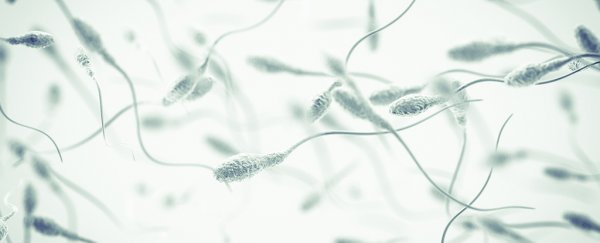It appears that climate change could be damaging the fertility of insects, leaving males virtually sterile, according to new research. Since these creatures make up 90 percent of all life forms on Earth, the results should concern all of us.
Scientists agree that climate change is causing heatwaves to become longer, more intense, more frequent and more widespread. At the same time, the world is experiencing the worst extinction crisis since the loss of the dinosaurs 65 million years ago.
Insects are no exception. As the planet continues to warm at an unprecedented rate, these creatures have been rapidly disappearing around the world, and the new research suggests this is no coincidence.
"Local extinctions are known to occur when temperature changes become too intense. We wanted to know why this happens. And one answer could be related to sperm," says co-author Matt Gage, an expert in evolutionary ecology at the University of East Anglia.
Gage and his team chose to research this phenomenon in the red flour beetle (Tribolium castaneum); insects represent a huge chunk of global biodiversity, and this particular beetle has a similar reproductive system to many of them.
Beetles alone are the most abundant animal on Earth, making up a quarter of all known animal life-forms. But while some research has demonstrated that heatwaves can affect sperm in warm-blooded creatures, or endotherms, until now, research on cold-blooded creatures, or ectotherms, has been surprisingly lacking.
Simulating a heatwave, the researchers tested the impact of warm weather on a group of 56 male beetles and 55 female beetles.
For five days, these beetles were segregated by sex and cooped up at a temperature 5 to 7 degrees Celsius (9 to 12.6 degrees F) above their preferred climate. A control group was kept at standard temperature.
After the short vacation, the beetles were brought together to mate, and the findings do not offer much hope for their future.
While female reproduction remained largely intact, the males did not fare so well. The simulated heatwave appeared to halve the amount of offspring that males could produce.
And when the researchers began the study all over again, they noticed something even more worrying. The reproductive problems were exacerbated after each successive heatwave. After just two heatwaves, spaced ten days apart, the males were virtually sterilised. Their offspring production was less than one percent of the control group.
The problem appears to lie with sperm - following the simulated heatwave, the production of sperm dropped by three quarters. But even the sperm that was produced struggled to survive in the female reproductive tract.
"We've shown in this work that sperm function is an especially sensitive trait when the environment heats up, and in a model system representing a huge amount of global biodiversity," explains Gage.
"Since sperm function is essential for reproduction and population viability, these findings could provide one explanation for why biodiversity is suffering under climate change."
But there's another finding that's equally concerning, if not more so. This may be the first study to show that a heatwave's damage can have lasting, inter-generational effects.
The offspring produced by the male beetles were found to live shorter lives if their parent had experienced a heatwave. The offspring were also less fertile and produced fewer offspring themselves.
All of this suggests that DNA within the sperm has also been damaged by the heat, making the problem even harder for scientists to tackle.
The researchers warn that the cumulative and inter-generational effects they have discovered could undermine populations already suffering from climate change.
This is bad news because insects play an indispensable role in the global food web, pollinating flowers and plants. In short, they are responsible for much of the food that shows up on our plates.
It's also bad news because it suggests there are many, many life forms out there that are suffering from heatwave-induced infertility.
While it's still far too early to tell, the researchers say that a similar effect could be part of what is driving the recent drop in human fertility. In the last 40 years alone, the sperm counts of western men have dropped by half and scientists still aren't sure why.
"There could be relevance for human fertility," Gage told The Guardian.
"The paradox is that one of the reasons the climate is warming up and we are having more heat waves is there are too many humans. So maybe this is a leveller."
This study has been published in Nature Communications.
